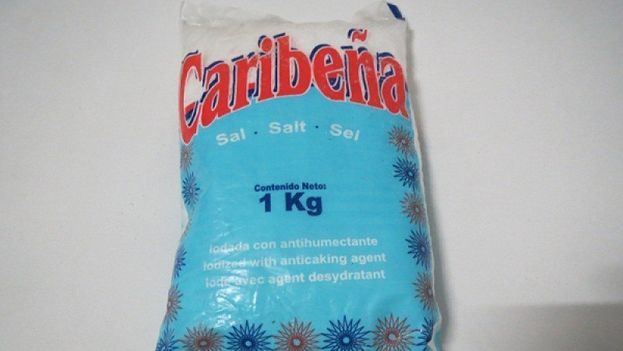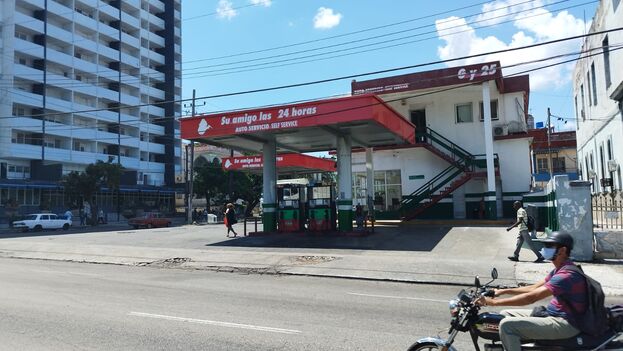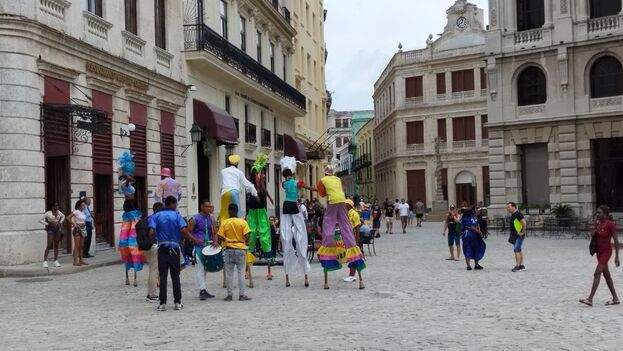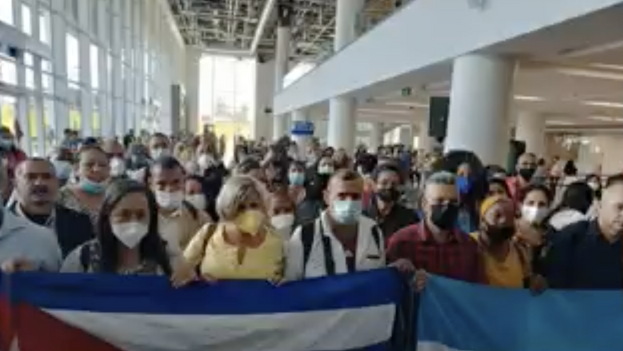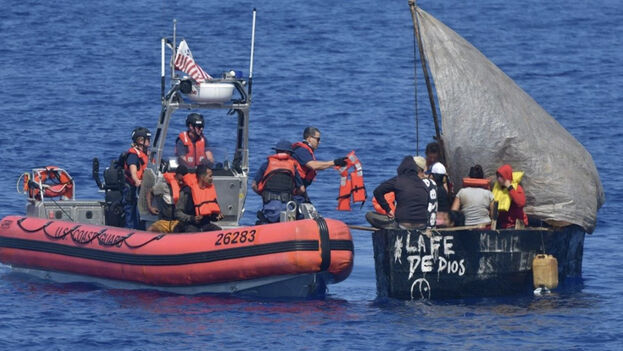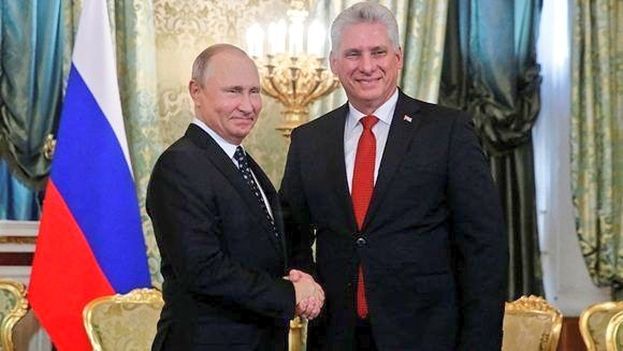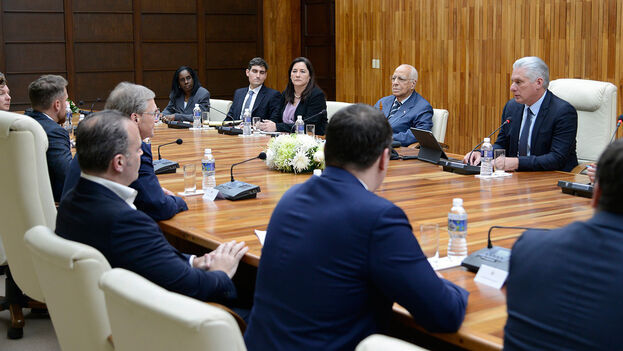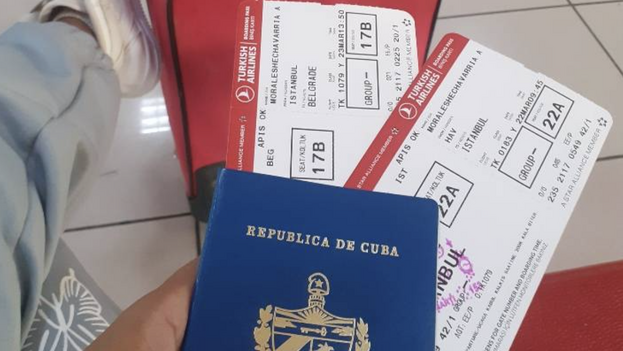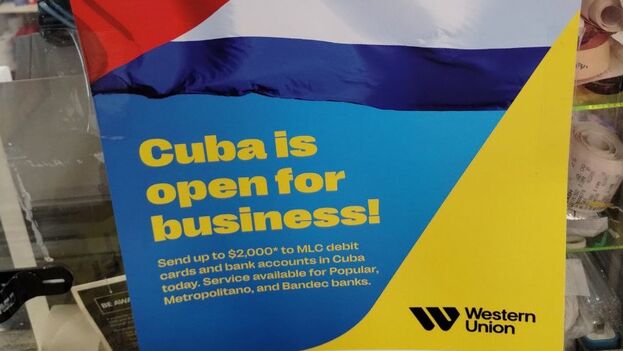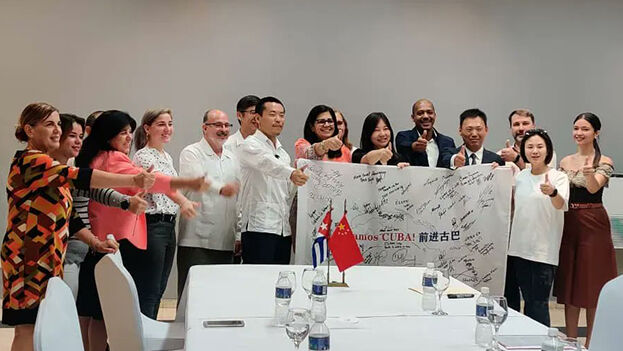However, the script of what has to be done to get the Cuban economy out of the Marxist hole is known and written, and in general, there is a lot of consensus around it. Therefore, it is advisable to distrust the Russian plan proposed by Putin’s adviser, Boris Titov, as president of the council of the Center for Russian-Cuban Economic Transformation that was born with the approval of Díaz-Canel during his trip to that country. This council acts on the instructions of Putin in the first place, and Díaz-Canel, secondly. From these two partners, from the good and the bad, you can expect anything, except rationality and economic wisdom. Any Spanish, Argentinian or American consultant could have done better.
The idea, in the first place, is to end the strict control that the regime exercises over the currency exchange. Correct. The creation of a foreign exchange market in Cuba for the peso, transparent and efficient, like the one that exists in other countries of the world with their respective currencies, is a proposal that the communist regime neither likes nor is interested in. Díaz-Canel had it at his fingertips in the Ordering Task,* and it barely lasted two months. He doesn’t like it because a fixed exchange rate can’t be sustained with the level of reserves of the economy. And it doesn’t interest him, basically, because for Cuban communists the foreign exchange market is nothing more than a means of collecting foreign currency for the state coffers that is not going to leave just because. continue reading
All the exchange decisions that are taken in Cuba, including the fixed exchange rate of the ordering task, go through arbitrating mechanisms for the spin of currencies that enter the country for the benefit of the state. The discrepancies between the official and the informal exchange rate prevent any possible solution to the problem of the loss of value of a currency, the fundamentals of which are in serious crisis. The regime does not like the alternative of a foreign exchange market and, therefore, will block this proposal of the Russians, even if they recognize the consequences of the disastrous exchange rate policy.
Secondly, the Russian plan proposes to Havana to empower and promote small and medium-sized enterprises, which in Cuba are known as SMEs, and which have already been criticized from different positions. Are the Russians thinking that Castro’s SMEs serve their reforms? I doubt it. They have proposed an in-depth reform of fiscal policy to bring out activities from the underground economy. As a theoretical approach it could work, but first you have to throw something away. In the Cuban economy, taxes are only a small part of what prevents the SMEs from prospering.
The main problem lies in the absolute interference that the communist regime maintains in the SMEs, which in Cuba must be authorized by the Ministry of Economy and Planning and violates the right to free enterprise that exists in market economies. The Ministry offers monthly data from authorized SMEs, but nowhere is there information on those that go out of business, and it is known that this type of project usually presents a high mortality in its early years. Without this data, it is impossible to determine the scope of the reform of SMEs and their economic and social impact. Presumably, the Russians have asked for the data. Meanwhile, the Cuban state maintains its absolute control over all strategic areas of the economy and corners the SMEs by limiting their possibilities for growth.
The SME sector and other private actors cannot lead any economic change because it only represents 7% of GDP, 11% of budget income and offers employment to a quarter of the country’s workers (1,600,000 according to data from the Ministry of Labor, compared to more than 3 million, double, employed by the state and its companies). The figures do not allow comparison: the private sector in other countries represents more than 80% of employment and in terms of GDP management it far exceeds 70%. The distance from Cuba with these international parameters indicates the intensity and complexity of the reforms to be undertaken.
Thirdly, the Russian plan aims to eliminate other obstacles faced by companies in Cuba, such as the difficulty in accessing credit, high taxes, problems with the rate of return due to the prices of some goods, which are established in a directive way by the regime, or the price of other goods, limited by low wages in the public sector.
In short, return the axis of the functioning of the economy to the private market. Correcting the aforementioned factors is not easy, especially since, in this case, it would not be fair to apply corrective measures only to private companies, when the state companies, which are the “center of the economic system” for the regime, will not receive the same treatment.
Fourthly, the Russian plan believes that making the tax regime more flexible can help the private sector get out of the underground economy and the vicious circle in which it finds itself, and produce results in the increase of the production of food and commodities. The proposal is to move slowly, but surely, in terms of reforms, to avoid what happened in Russia, where structural transformations caused notable social injustices.
The question is how to reconcile reforms in the functioning of the economy with the maintenance of social quotas served by a budget that, necessarily, has to be reduced in size to free up resources for the private sector. It is not a matter of shock therapies or anything like that, but if the state is intended to reduce its weight in activity by placing itself at levels similar to other countries, and central planning is to be replaced by the laws of supply and demand in the setting of prices, the population cannot be deceived: sacrifices will have to be accepted.
And those sacrifices will be the greater the more the structural decisions are delayed and the more they try to sustain the state budget with the current superfluous spending commitments that currently exist. There is no possible alternative, and it should be explained to the people that the adjustments are necessary to build a prosperous economy, capable of generating employment and wealth for all, far from the Stalinist collapse of six decades.
Fifth, the definitive farewell to collectivism must be accompanied by transparent privatization processes with international observers, to ensure the legality of the actions. But as far as we know, the Russian plan doesn’t say much about this. The redistribution of economic power that is associated with these processes should not lead to the creation of mafia groups or companies of the regime, which in reality already exist, but to the birth of efficient, flexible and competitive private companies that help in the reconstruction of the nation. If the Russians are not able to offer this solution, it’s better that they don’t do anything.
In reality, the experience of Cuban SMEs in the last year has little to do with the free enterprise of which the Russians speak. Of course, it is much better that there are SMEs than that there are none. But the regime has absolutely controlled the process of creation and approval, and despite everything, it has not been able to consolidate productive structures in the field of food, where unattended needs are still very prominent. There has been a commitment to the manufacturing industry and services, which have been consolidated in the first sectoral position.
There have also been complaints that some SMEs have been oriented to develop businesses that are in the hands of family and friends of senior officials, as well as foreign entrepreneurs related to the regime. But the truth is that, so far, you can’t talk about an economic class with defined objectives and purposes. The state maintains absolute control of the process, and the SME as an alternative to communist power is weak.
Within the framework of the projects that the Russians want to implement in Cuba, there has also been talk of a joint commercial company, based on foreign investment to distribute food, chemicals and other items with the participation of the Cimex group, although no contract has yet been signed, and it is already known how these things end. Another investment project, also to be developed, is a hotel for the exclusive use of Russians, justified by the return of tourism from this country to the Island. The authorities have denied this information.
Okay, then. Russia’s relations with other countries, including Cuba, are usually structured on a framework of obscurity and little transparency that, at times like the present, with the war in Ukraine and the international embargo, multiplies significantly. Geopolitics also has a very important influence. Russians are not Cubans, nor are Cubans Russians. It will be difficult to know exactly what the Russian plans consist of, but there is no doubt that they may be compromised by what happens in Russia in the immediate future. Most likely, they will amount to nothing.
*The Ordering Task is a collection of measures that include eliminating the Cuban Convertible Peso (CUC), leaving the Cuban peso as the only national currency, raising prices, raising salaries (but not as much as prices), opening stores that take payment only in hard currency, which must be in the form of specially issued pre-paid debit cards, and a broad range of other measures targeted to different elements of the Cuban economy.
Translated by Regina Anavy
____________
COLLABORATE WITH OUR WORK: The 14ymedio team is committed to practicing serious journalism that reflects Cuba’s reality in all its depth. Thank you for joining us on this long journey. We invite you to continue supporting us by becoming a member of 14ymedio now. Together we can continue transforming journalism in Cuba.
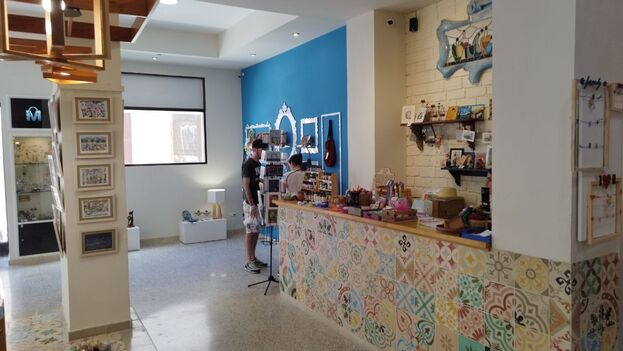
![]() 14ymedio, Madrid, 5 April 2023 — The private sector created almost twice as many jobs in Cuba in 2022 as did the State. The number of new employees amounted to 226,704, of which 79,912 were government employees, compared to 146,792 in “other forms of management,” according to data offered in the annual review analyzed on Tuesday by Prime Minister Manuel Marrero, who asked for “a different look” taking into account “the challenges imposed by demographic dynamics.”
14ymedio, Madrid, 5 April 2023 — The private sector created almost twice as many jobs in Cuba in 2022 as did the State. The number of new employees amounted to 226,704, of which 79,912 were government employees, compared to 146,792 in “other forms of management,” according to data offered in the annual review analyzed on Tuesday by Prime Minister Manuel Marrero, who asked for “a different look” taking into account “the challenges imposed by demographic dynamics.”
